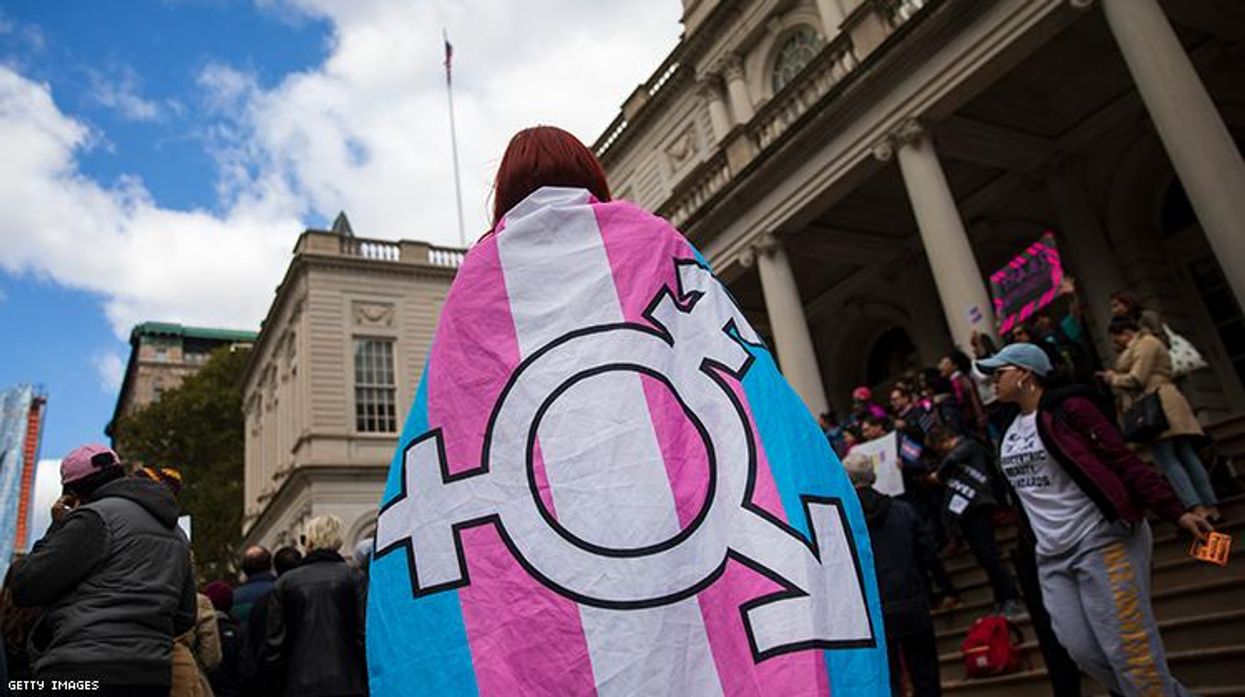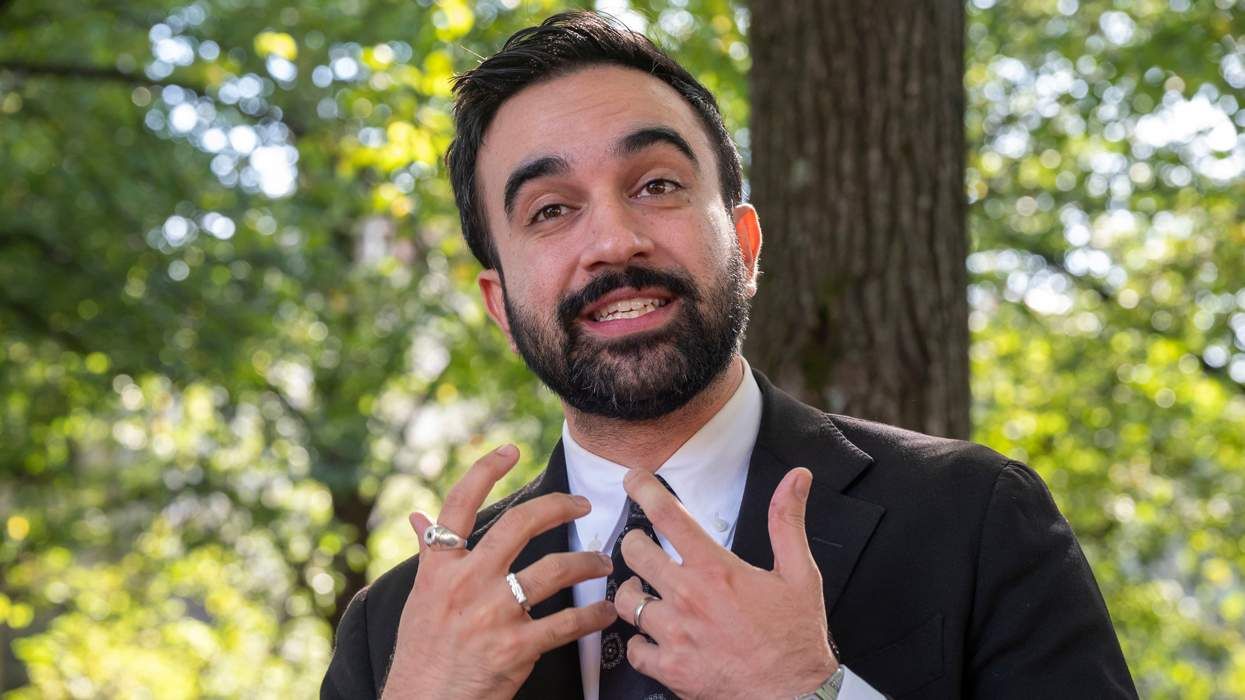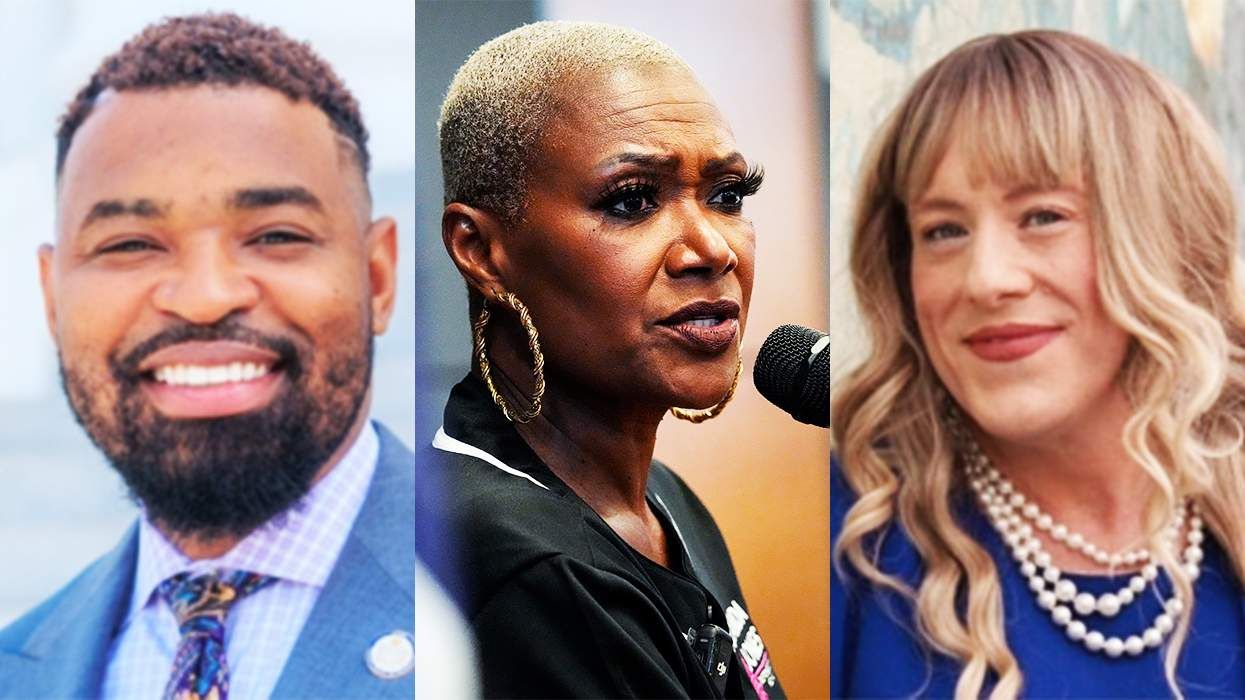After more than three years of litigating, a North Carolina federal judge approved a consent decree which would protect the rights of transgender citizens in the state to access public accomodations like restrooms and locker rooms according to their gender identities on Tuesday.
"This victory belongs to the trans and non-binary people in North Carolina who continue to lead the fight for justice in North Carolina and beyond," said Joaquin Carcano in a statement for the American Civil Liberties Union.
Back In March 2016, the North Carolina General Assembly (under former Gov. Pat McCrory), passed the Public Facilities Privacy & Security Act, which came to be known infamously as HB2. The law, which was aimed at reversing and discouraging local ordinances that would protect the LGBTQ+ community, was mostly wielded against the state's trans citizens seeking to use public facilities that correspond with their gender identities.
In the immediate aftermath, organizing efforts and direct actions sprang up in opposition to the legislation. As well, Carcano led plaintiffs (with the ACLU and Lambda Legal) in a legal suit against the discriminatory law. The saga has been difficult to follow, but we caught up with ACLU Staff Attorney Chase Strangio on what the latest development means for trans North Carolinians and trans Americans at-large.
There was major attention on HB 2 when it first appeared in 2016, but what happened in the aftermath?
The North Carolina General Assembly is incredibly conservative and has been committed to having all sorts of harmful legislation including HB 2, other anti-trans legislation, voter [identification] laws, gerrymandering law, and anti-immigrant laws. In 2016, it passed HB 2 and [the ACLU] immediately filed a lawsuit along with Lambda [Legal] to challenge it. At the time, the Obama administration had also filed a lawsuit. We were able to stop parts of HB 2 from going into effect, then after the 2016 election and a Democratic governor was elected, the legislature repealed HB 2, then passed another law called HB 142, which [the ACLU] also sued over because we believe it was anti-trans in nature and harmful to the community, particularly in light of the history of HB 2.
What makes HB 142 different from HB 2?
HB 142 took out the explicit ban on trans people using restrooms and locker rooms, but it was ambiguous. So, conservative North Carolina lawmakers kept saying that the HB 2 ban was still in effect. Then, the Democratic administration in North Carolina under Governor [Roy] Cooper essentially agreed with us that HB 142 could not be used to harm trans people by attempting to bar them from restrooms. The lawmakers and the leaders in the General Assembly continued to try to argue that it could. So we've been in litigation, we survived a bunch of motions to dismiss the claims and what happened earlier this week was a huge victory. In terms of HB 142, the judge entered an order codifying the agreement between us and the governor and the state saying that HB 142 could officially not be used to bar trans people from restrooms and locker rooms.
What has been the response from North Carolina's trans community?
Now, there is clarity for the trans community in North Carolina, at least in regards to this series of laws, that they can't be used as a source to target trans and nonbinary folks in the space. There are other parts of the lawsuit that are on hold. After three and a half years of litigating and an incredibly hostile [political] climate, I think we're in a good place with a combination of organizing that happened in state and nationally and filing a lawsuit to, you know, get an actual court order to make sure that the law was neutralized and prevented from harming trans people in the ways that it had been.
How powerful is a consent decree in the face of opposition?
One of the reasons a consent decree is better than an out-of-court settlement is because it binds future administrations. It's a court order that runs not just through this Democratic administration, but all future administrations in North Carolina. Having a binding court order gives a lot more clarity and security for the community regardless of what happens in future elections. It's not just an agreement between our clients and this governor. It's an agreement as to the meaning of the law forever more moving forward.
Where does the fight for protecting trans folks in public accomodations go now that this consent decree has been handed down?
What feels so important for people to understand is that the resolution of the cases at the Supreme Court over Title VII, the law that covers employment, is going to have a huge impact on every aspect of federal legal protection for all LGBT people.
When we're looking at just formal equality with respect to the law, the Supreme Court is answering the big question of whether the government can effectively exclude trans people from federal legal protections. The Supreme Court is answering that and that briefing will be completed at the end of the summer with an argument on October 8th. That is a huge part of the legal fight moving forward and will dictate whether LGBT folks are covered under federal laws prohibiting discrimination in healthcare, housing, education, and employment.
Even if we win at the Supreme Court, even if we have every formal legal protection in the world, the reality of lived experiences is that the law doesn't actually do what it says it's going to do. So, we'll still have to take on things like the criminalization of sex work and decarceration. There are parallel tracks of holding the line at the Supreme Court, making sure we don't move [backwards], and making sure we don't think that [decision is] the final answer.
A few years ago, there was a continuing onslaught of legislation targeting trans folks in different states. Where is that trend now? Was it halted at all in the aftermath of HB 2 in North Carolina?
[The trend is] still continuing for sure. I think conservatives don't feel the same urgency because they have an ally in the White House. There was a different sense of urgency when Obama was president. We have had a lot of success in defeating the bills at the state level.
Come January [2020] when the states are back in [legislative] session, we're going to keep seeing these efforts, particularly around trans participation in sports. I think this is the Right's new fixation. They think they've found the way to most effectively divide [cisgender] feminists from the trans community. I bet we're going to see more bills that attempt to sort of shift from focus on restrooms and locker rooms to sports and try to exclude trans youth from participating in court.
The Trump administration and Congress have been incredibly effective at transforming the federal judiciary. I think we've got to get our act together by looking at all branches of government so that we can continue to stop efforts to systematically deprive people and have access to public space and basic legal recognition.
RELATED: South Dakota Lawmakers Kill Anti-Trans Bill As More Pop Up Nationwide






























